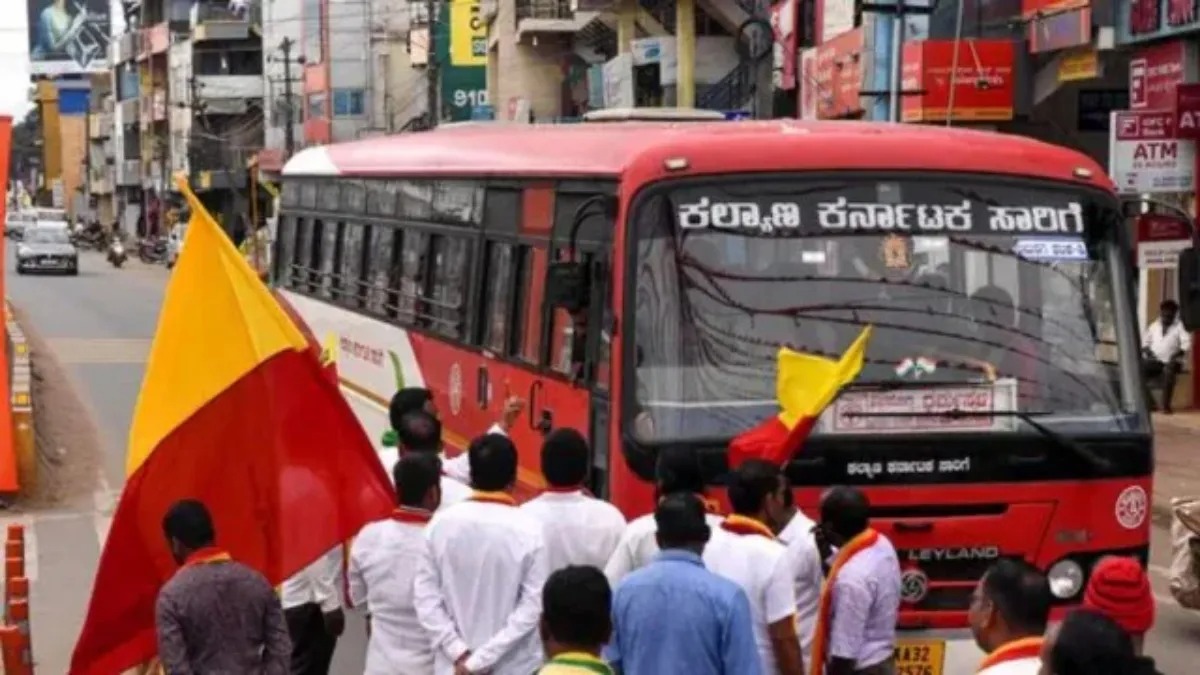
Karnataka woke up to a tense and uncertain morning as pro-Kannada organizations enforced a 12-hour statewide bandh, halting transportation, disrupting services, and turning daily life upside down. The call for the bandh isn’t random—it’s the result of escalating frustration over the state’s perceived neglect of Kannada identity, language rights, and related cultural-political grievances.
The bandh was sparked by a combination of recent administrative moves, which local groups claim dilute Kannada prominence in state affairs. From language imposition in government exams to dissatisfaction over allocation of resources, these groups argue that Karnataka’s interests are consistently sidelined. The protest is not just against one issue—it’s against a sense of cumulative marginalization.
The 12-hour shutdown was announced as a symbolic yet powerful message to both the state and central governments: listen to the voice of Karnataka, or face the heat. Roads, highways, and key junctions across the state were blocked, causing widespread disruptions.
Who Are the Pro-Kannada Groups Behind It?
This bandh isn’t the handiwork of a fringe group. Leading the charge are long-established pro-Kannada outfits like Karnataka Rakshana Vedike, Kannada Chaluvali Vatal Paksha, and several student unions. These organizations have consistently advocated for Kannada pride and have a history of mobilizing mass support when regional identity is at stake.
These groups claim that the bandh is not an anti-development stance but a call for balanced and fair governance. Their messaging is clear: Kannada language and culture deserve constitutional respect, not symbolic tokenism. The bandh, according to them, is an act of last resort—a wake-up call for those in power.
The Core Demands of the Protesters
Language, Land, and Local Identity
The demands being raised during the bandh touch three emotional and political nerves—language, land, and local identity. Pro-Kannada groups allege that repeated policies from central agencies undermine the Kannada language, especially in competitive exams, administrative communication, and education. There's a growing fear that Kannada is being sidelined by the increasing dominance of Hindi and English.
Land is another major issue. Protesters point to the allocation of state resources to central institutions and alleged encroachment on traditional Kannada-speaking zones by outsiders and migrants. They are not just opposing development, but demanding that it be done with sensitivity to the state’s local fabric.
Finally, identity forms the core of this protest. The call for reservation in private jobs for Kannadigas, prioritizing locals in education and employment, and enforcing Kannada signboards reflect a broader urge for cultural preservation in a rapidly globalizing state.
Longstanding Grievances Resurface
Many of these grievances are not new. In fact, they’ve been simmering for years, often brushed aside in the name of national integration or administrative convenience. What’s changed now is the frequency and boldness of the demands. Social media has amplified the conversation, and the recent moves by the government have added fuel to the fire.
Activists say enough is enough. They argue that without concrete policy backing, the Kannada language and identity may fade into the background, especially in Bengaluru—a melting pot of cultures but often at the cost of its native heritage.
--Advertisement--

 Share
Share



